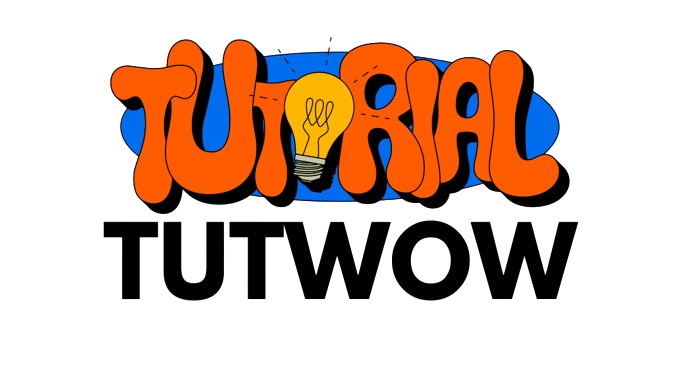Understanding Writer’s Block
Writer’s block is a common challenge that affects writers of all levels, from novice bloggers to seasoned authors. It’s characterized by a temporary inability to produce new work or come up with fresh ideas. This creative roadblock can be frustrating and demoralizing, but it’s important to remember that it’s a normal part of the writing process.
Common Causes of Writer’s Block
Several factors can contribute to writer’s block:
1. Fear of failure: The pressure to create perfect content can be paralyzing.
2. Perfectionism: Constantly editing as you write can hinder progress.
3. Lack of inspiration: Sometimes, the well of ideas simply runs dry.
4. Burnout: Overworking can lead to mental exhaustion.
5. Distractions: A noisy environment or constant interruptions can disrupt your flow.
Understanding these causes is the first step in overcoming writer’s block. Now, let’s explore various strategies to reignite your creativity and keep the words flowing.
Practical Techniques to Overcome Writer’s Block
1. Freewriting
Freewriting is a powerful technique to bypass your inner critic and get words on the page. Here’s how to do it:
1. Set a timer for 10-15 minutes.
2. Write continuously without stopping to edit or correct.
3. Don’t worry about grammar, spelling, or coherence.
4. If you get stuck, write about being stuck until new ideas emerge.
This method helps to silence your inner critic and can often lead to unexpected breakthroughs.
2. Change Your Environment
Sometimes, a change of scenery is all you need to spark creativity. Try these options:
– Work in a coffee shop or library
– Set up a writing nook in your home
– Take your laptop to a park or garden
– Try standing or walking while writing
Pro tip: Experiment with different environments to find what works best for you. Some writers thrive in busy cafes, while others need complete silence.
3. Use Writing Prompts
Writing prompts can jumpstart your creativity when you’re feeling stuck. Here are some resources for finding prompts:
– r/WritingPrompts on Reddit
– Writing Exercises website
– The Most Dangerous Writing App
Challenge yourself to write for 10 minutes based on a prompt, even if it’s unrelated to your current project. This can help loosen up your writing muscles.
4. Break Your Project into Smaller Tasks
Large writing projects can be overwhelming. Break them down into manageable chunks:
1. Create an outline
2. Set word count goals for each section
3. Focus on one section at a time
4. Celebrate small victories along the way
By tackling your project in smaller pieces, you’ll build momentum and confidence.
Cultivating a Consistent Writing Habit
1. Establish a Routine
Consistency is key to overcoming writer’s block. Create a writing routine that works for you:
– Choose a specific time of day for writing
– Set up a dedicated writing space
– Develop pre-writing rituals (e.g., brewing coffee, meditation)
– Aim for a daily word count or time goal
Remember: It’s better to write a little every day than to have sporadic marathon sessions.
2. Use Time Management Techniques
Effective time management can boost your productivity and help you overcome writer’s block. Try these methods:
The Pomodoro Technique
1. Set a timer for 25 minutes
2. Write without distractions until the timer goes off
3. Take a 5-minute break
4. Repeat the cycle 4 times, then take a longer break
Time Blocking
1. Divide your day into blocks of time
2. Assign specific tasks to each block
3. Focus solely on the assigned task during that time
These techniques help maintain focus and prevent burnout.
3. Read Widely
Reading is essential for writers. It exposes you to new ideas, styles, and perspectives. To maximize the benefits:
– Read both within and outside your genre
– Analyze the writing techniques of authors you admire
– Keep a reading journal to note interesting phrases or ideas
Pro tip: If you’re writing in a specific genre, immerse yourself in that genre’s classics and contemporary works.
Harnessing Technology for Inspiration
1. Writing Software and Apps
There are numerous tools designed to help writers stay organized and inspired:
– Scrivener: A comprehensive writing software for long-form projects
– Freedom: An app that blocks distracting websites and apps
– Evernote: A note-taking app for capturing ideas on the go
– Grammarly: A writing assistant that checks grammar and style
Experiment with different tools to find what works best for your writing process.
2. AI Writing Assistants
Artificial Intelligence can be a valuable tool for overcoming writer’s block:
– Copy.ai: Generates ideas and content for various writing needs
– Jasper: An AI writing assistant that can help with brainstorming and content creation
– ChatGPT: A conversational AI that can help with ideation and research
While these tools shouldn’t replace your original writing, they can be helpful for generating ideas or overcoming specific obstacles.
3. Online Writing Communities
Connecting with other writers can provide support, accountability, and inspiration:
– NaNoWriMo: National Novel Writing Month community
– Absolute Write Water Cooler: A forum for writers of all levels
– Scribophile: A critique and writing group platform
Engaging with these communities can help you stay motivated and learn from other writers’ experiences.
Nurturing Your Creativity
1. Practice Mindfulness
Mindfulness techniques can help clear your mind and boost creativity:
– Meditation: Try apps like Headspace or Calm
– Deep breathing exercises
– Mindful walking or nature observation
Regular mindfulness practice can help you stay focused and reduce stress-related writer’s block.
2. Engage in Creative Cross-Training
Exploring other creative activities can stimulate your writing:
– Drawing or painting
– Playing a musical instrument
– Cooking or baking
– Gardening or crafting
These activities can help you approach your writing from new angles and spark fresh ideas.
3. Keep an Idea Journal
Capture ideas as they come to you:
– Use a physical notebook or a note-taking app
– Jot down interesting conversations, observations, or dreams
– Collect inspiring quotes, images, or articles
Having a repository of ideas can be invaluable when you’re feeling stuck.
Overcoming Common Writing Challenges
1. Dealing with Self-Doubt
Self-doubt is a common cause of writer’s block. To combat it:
– Practice positive self-talk
– Celebrate small wins
– Keep a “praise file” of positive feedback or accomplishments
– Remember that all writers face doubts
Affirmation: “I am a capable writer, and my voice matters.”
2. Managing Perfectionism
Perfectionism can be paralyzing. Try these strategies:
– Embrace the concept of a “shitty first draft” (coined by Anne Lamott)
– Set realistic expectations for each writing session
– Focus on progress, not perfection
– Use timed writing sessions to force yourself to keep moving forward
Remember, you can always revise and improve your work later.
3. Coping with Rejection
Rejection is a normal part of a writer’s journey. To handle it constructively:
– View rejection as a learning opportunity
– Seek constructive feedback when possible
– Remember that even famous authors face rejection
– Keep submitting and persevering
Quote: “I love my rejection slips. They show me I try.” – Sylvia Plath
Advanced Techniques for Sustained Inspiration
1. Mind Mapping
Mind mapping is a visual brainstorming technique that can help organize your thoughts and generate new ideas:
1. Start with a central concept in the middle of a page
2. Branch out with related ideas and subtopics
3. Use colors, symbols, and images to enhance connections
4. Let your mind freely associate and explore tangents
Tools like MindMeister or XMind can help you create digital mind maps.
2. The “What If” Game
This technique involves asking “What if?” questions to explore new possibilities in your writing:
– What if your protagonist made a different choice?
– What if the story was set in a different time period?
– What if a new character was introduced?
This game can help you break out of linear thinking and discover exciting plot twists or character developments.
3. Collaborative Writing
Writing with a partner or group can inject fresh energy into your work:
– Participate in writing workshops
– Join a writing group that meets regularly
– Try collaborative storytelling games like Storium
Collaboration can provide new perspectives and help you overcome creative blocks.
Maintaining Long-Term Writing Motivation
1. Set Clear Goals
Having clear, achievable goals can keep you motivated:
– Use the SMART criteria (Specific, Measurable, Achievable, Relevant, Time-bound)
– Break long-term goals into short-term milestones
– Regularly review and adjust your goals as needed
Example: “I will write 500 words every day for the next month to complete the first draft of my short story.”
2. Reward Yourself
Create a reward system for meeting your writing goals:
– Treat yourself to a favorite snack or activity after reaching a word count goal
– Plan a special outing or purchase when you complete a major project
– Share your achievements with supportive friends or family members
Positive reinforcement can help build a sustainable writing habit.
3. Continuously Educate Yourself
Invest in your growth as a writer:
– Attend writing conferences or workshops
– Take online courses on platforms like MasterClass or Coursera
– Study books on the craft of writing
– Analyze the work of writers you admire
Ongoing learning can provide fresh inspiration and improve your skills.
Conclusion
Writer’s block is a common challenge, but it doesn’t have to derail your creative journey. By implementing these strategies and techniques, you can overcome obstacles, maintain consistent inspiration, and continue to grow as a writer. Remember that every writer faces difficulties, and persistence is key to success.
Experiment with different approaches to find what works best for you. Be patient with yourself and celebrate your progress, no matter how small. With practice and perseverance, you can develop a sustainable writing habit that allows your creativity to flourish.
Keep writing, stay curious, and don’t be afraid to take risks with your work. Your unique voice and perspective are valuable, and the world is waiting to hear your stories.
FAQs
Q: How long does writer’s block typically last?
A: The duration of writer’s block varies greatly from person to person and situation to situation. It can last anywhere from a few hours to several weeks or even months. The key is to actively work on overcoming it rather than waiting passively for inspiration to strike.
Q: Can writer’s block be prevented?
A: While it’s difficult to completely prevent writer’s block, you can reduce its frequency and severity by maintaining a consistent writing routine, taking care of your mental and physical health, and regularly engaging in activities that inspire and energize you creatively.
Q: Is it okay to take a break when experiencing writer’s block?
A: Yes, sometimes taking a short break can be beneficial. However, it’s important to set a specific time to return to your writing. Extended breaks can make it more difficult to get back into the rhythm of writing.
Q: How can I tell if I have writer’s block or if I’m just procrastinating?
A: Writer’s block is typically characterized by a genuine inability to generate ideas or write, despite the desire to do so. Procrastination, on the other hand, often involves avoiding writing tasks in favor of other activities. If you find yourself consistently choosing other tasks over writing, it may be procrastination rather than writer’s block.
Q: Can reading help overcome writer’s block?
A: Yes, reading can be an excellent way to overcome writer’s block. It can expose you to new ideas, styles, and perspectives that may inspire your own writing. Additionally, reading can help you get into a “writing mindset” and remind you of your love for the written word.
Q: Are there any physical exercises that can help with writer’s block?
A: Yes, physical activity can be very helpful in overcoming writer’s block. Exercise increases blood flow to the brain, which can boost creativity and cognitive function. Simple activities like taking a walk, doing yoga, or even just stretching can help clear your mind and stimulate new ideas.

